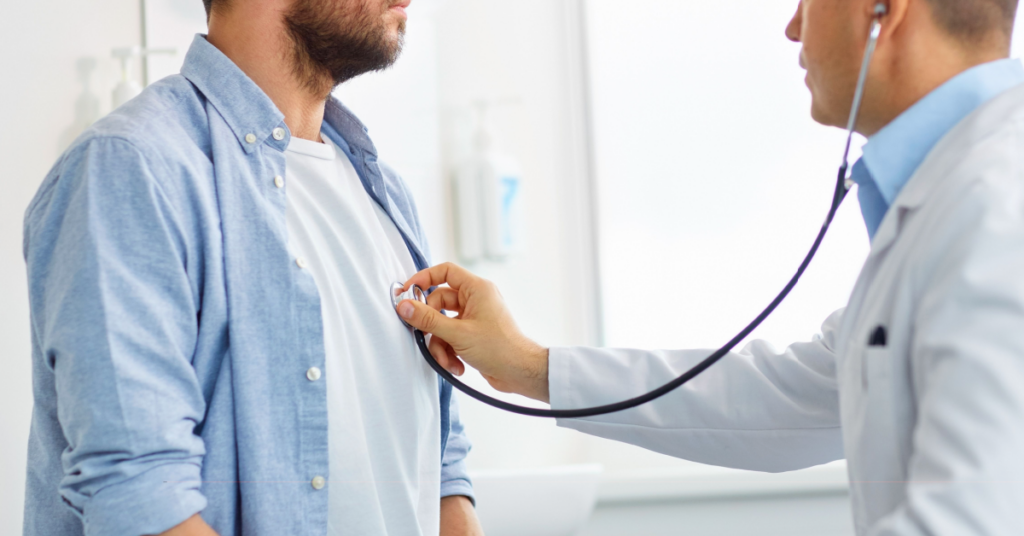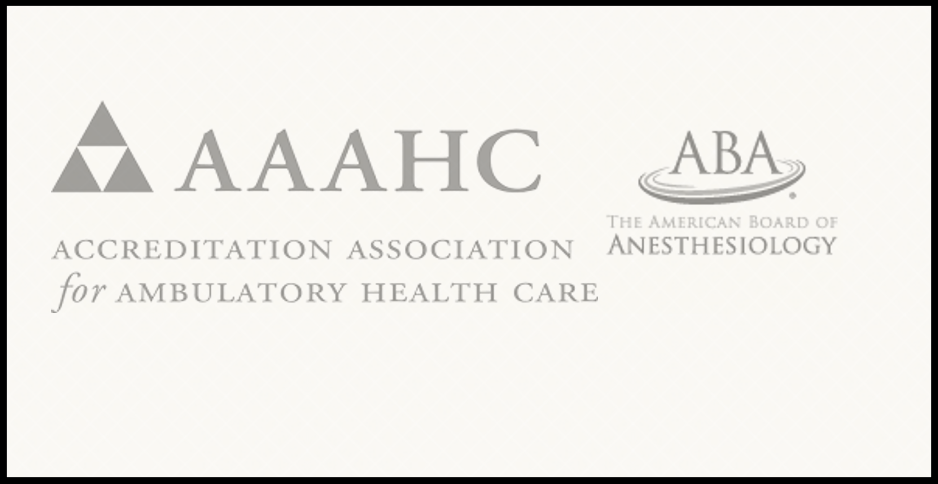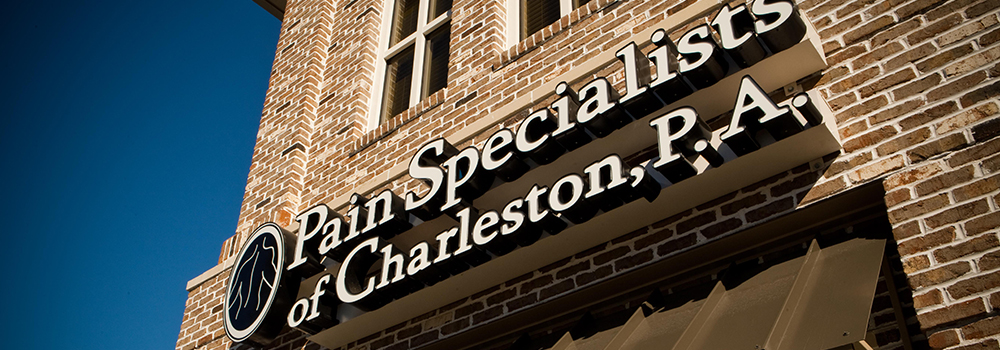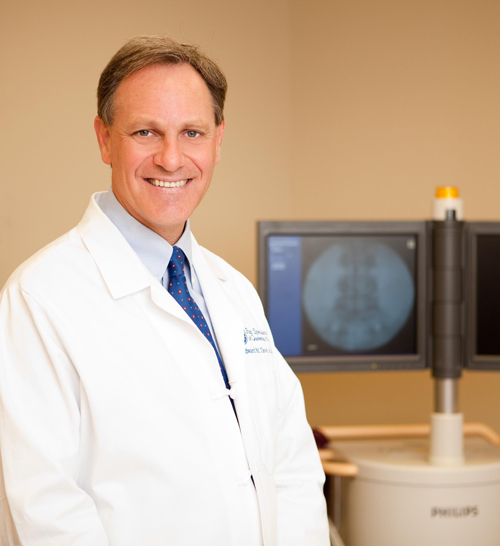Chest Pain

CHEST PAIN PHYSICIAN IN CHARLESTON, SC
Chest pain can be felt in many ways, like a sharp stab or a dull ache, or maybe crushing or burning. Sometimes the pain can even travel up your neck to your jaw or out to one or both arms.
It can be scary and is often due to a serious medical problem. That’s why it’s important to see immediate medical help if you experience chest pain.
At Pain Specialists of Charleston, we offer skilled chest pain specialists and double board certified physicians to assist you in your pain management journey to get you real results, no referral needed! So, if you’re in the Low Country area come see us open 5 days a week, we’re even accepting same day appointments!
No Referral Needed — Same Day Appointments — Accepting New Patients
Request Appointment | Meet Pain Doctors | Contact Us | Visit Us
SIGNS & SYMPTOMS
Depending on the cause(s), chest pain can feel different. Many times, the heart isn’t the cause of your chest pain, but there is no way to know this without seeing your doctor.
Common chest pain signs and symptoms include:
- Pressure, burning, or tightness in the chest
- The feeling of fullness in the chest
- Crushing or searing pain, especially if it spreads to the back, neck, jaw, shoulders, and/or arms
- Pain that persists for more than a few minutes or goes away and comes back
- Pain that varies in intensity
- Pain that gets worse with activity
- Shortness of breath
- Cold sweats
- Weakness, dizziness, or lightheadedness
- Racing heartbeats
- Nausea or vomiting
- A sour taste or a sensation of food re-entering the mouth
- Difficulty swallowing
- Pain that gets better or worse when you change body position
- Pain that gets worse when you breathe deeply or cough
- Tenderness when you push on your chest
WHEN TO SEE A DOCTOR
If you believe you are having a heart attack or are experiencing new or unexplained chest pain, call 911 immediately. If you cannot get an ambulance to come to you, have a friend, family member, or neighbor drive you to the nearest hospital. You should only drive yourself if you have no other option.
Chest pains are serious, so you should see a doctor as soon as possible. If appropriate, they can refer you to board-certified pain management physicians like the team at Pain Specialists of Charleston to develop a plan to get to the root of your pain and find relief. So, schedule an appointment with certified chest pain specialist today! No referral needed!
CAUSES
Muscle &/or Bone Related
Sometimes chest pain is related to injuries or other issues impacting the structures of the chest wall. These include:
- Costochondritis, in which the cartilage that joins the ribs and the breastbone becomes inflamed and painful.
- Sore muscles, typically caused by overuse or chronic pain syndromes, like fibromyalgia.
- Injured ribs, specifically bruised or broken ribs.
For muscle and bone issues, schedule an appointment with Pain Specialists of Charleston. We offer board-certified pain management physicians to diagnose and treat chronic chest pain so you can get back to your life.
Heart-Related Causes
When most people experience chest pain, they assume it is related to their heart. While this isn’t always the case, it’s important to know the most common types of heart-related chest pain and their causes.
Examples of heart-related causes of chest pain include:
- Angina, which is caused by poor blood flow to the heart. This is typically caused by the thick plaque buildup on the inner walls of the arteries that carry blood to the heart. Buildup narrows the arteries and restricts the heart’s blood supply, particularly during physical activity. It usually feels like pressure or squeezing in your chest.
- Heart attack, which occurs when blood flow to the heart muscle is blocked, often from a blood clot. During a heart attack, you will feel angina.
- Aortic dissection, a life-threatening condition that involves the layers of the blood vessels of the main artery leading from the heart, called the aorta, separating. When these layers separate, blood is forced between the layers and can cause the aorta to rupture.
- Inflammation of the sac around the heart, also known as pericarditis. With this condition, you will feel a sharp pain that gets worse when inhaling or lying down.
If you are experiencing any heart-related issues, call 911 or emergency medical help immediately. Don’t ignore the symptoms of a heart attack.
Digestive-Related Causes
While many people are unaware, chest pain can be caused by digestive system disorders, including:
- Heartburn, a painful, burning feeling behind the breastbone. It happens when stomach acid comes up from the stomach into the esophagus.
- Swallowing disorders, which typically occur in those who have problems with the esophagus. These disorders can make swallowing difficult and painful.
- Gallbladder or pancreas problems, like gallstones or inflammation. This can easily spread to the chest.
If you are experiencing these issues, please speak with your primary care doctor or gastroenterologist. Treatment is readily available for these problems.
Lung-Related Causes
There are a variety of lung problems that can cause chest pain, including:
- A blood clot in the lung, also known as a pulmonary embolism. When a blood clot gets stuck in a lung artery, it can block blood flow to lung tissue. This causes chest pain, dizziness, and shortness of breath.
- Pleurisy, or inflammation of the membrane covering the lungs. With this condition, chest pain will get worse when you breathe in or cough.
- A collapsed lung, which causes sudden pain that can last for hours and typically causes shortness of breath.
- Pulmonary hypertension, or high blood pressure in the lung arteries. This condition causes chest pain, along with rapid heart rate, fatigue, and blue or gray skin color due to low oxygen levels. It can be life-threatening and if you are experiencing any of these symptoms, seek medical treatment immediately.
Additional Causes
There are other less severe causes of chest pain, including:
- Panic attacks. Chest pain with periods of intense fear may be panic attacks. Other symptoms include rapid heartbeat, rapid breathing, sweating, dizziness, and a fear of dying. It can be hard to tell the difference between a heart attack and a panic attack, so we recommend seeking medical help if you are unsure of the cause of your chest pain.
- Anxiety. People who suffer with chronic anxiety frequently experience mild chest pains, pressure in the chest, and rapid heart rate during periods of heightened anxiety.
- Shingles, which often causes a band of sharp pain around the chest.
DIAGNOSIS
- Physical Exam
At Pain Specialists of Charleston, your first visit will include a discussion of your medical history and a physical exam of the area(s) impacted by your pain problem. This visit will last approximately 30 minutes. - MRI Scan
Our team offers board-certified radiologists to examine your body for medical conditions using advanced magnetic resonance imaging (MRI). The scan is a noninvasive medical imaging test that will show detailed images of the inner structure of your body, including bones, muscles, organs to blood vessels. No referral needed! - Blood Tests
After a heart attack, if you experience heart damage, certain heart proteins slowly leak into the blood. If you’re experiencing chest pain, your physician will likely perform blood tests to check for these proteins. - Chest X-ray
X-rays show the condition of your lungs and reveal any issues such as pneumonia or a collapsed lung. It can also show us the size and shape of your heart and major blood vessels. - Computerized Tomography Scan (CT Scan)
CT scans show us cross-sectional images of organs, tissues, bones, and other internal body parts. With a CT scan, we can spot a blood clot in the lung or aortic dissection. - Electrocardiogram (ECG or EKG)
This is a quick test that measures your heart’s electrical activity. It tells us if your heart is beating too quickly, too slowly, if you have had a heart attack and more.
TREATMENT
At Pain Specialists of Charleston, our board-certified team offers a range of pain management treatments, including:
- Injections
- Injured Nerve Block
- Radiofrequency Ablation (Rhizotomy)
- Discography
- Neurostimulation, also known as Spinal Cord Stimulation
- Medical Massage Therapy
- Clinical Trials
- & More
MEET DOCTOR EDWARD M. TAVEL, JR., MD
- Over 20+ Years of Specialty Training
- Double-Board Certified in Anesthesiology and Pain Management
AWARDS & ASSOCIATIONS

CONDITIONS WE MANAGE
- Knee Pain
- Chest Pain
- Shoulder Pain
- Back Pain
- Hip Pain
- Neck Pain
- & More
TREATMENTS WE OFFER
- Acupuncture
- Biofeedback
- Cognitive behavioral therapy
- Massage
- Meditation
- & More

WHY CHOOSE US
At Pain Specialists of Charleston, we strive to provide an unmatched healthcare experience–one focused on finding relief. With this goal guiding our pain management physicians, we prioritize the following:
Compassionate and Comprehensive Care
Our practice takes a multidisciplinary approach to pain care that puts patients first. We’re proud to offer a full range of pain management procedures and treatments, including physical therapy, medical massage therapy, pain psychology, medication management, and more.
Timely Treatment
Because many of our patients suffer from severe pain, we’re committed to scheduling appointments as quickly as possible. This ensures the speedy start of a treatment plan to relieve and/or manage their pain.
Access to Safe Pain Management
Pain Specialists of Charleston offers a higher level of healthcare, performing all interventional procedures to meet strict, sterile standards and rigorously comply with all FDA, CDC, state, and federal medical safety guidelines.
Quality Care
Our providers are not only prominent leaders in the field of pain management, but advocates for the Charleston, SC patients we so proudly serve. It’s our exceptional care that sets us apart and earns our patients’ trust.
Request Appointment | Meet Pain Doctors | Contact Us | Visit Us
FAQS
WHY DOES MY CHEST HURT WHEN I TAKE A DEEP BREATH?
Chest pain when breathing can be a sign of many issues, including panic attacks, muscle strains, and infections, or more serious conditions like heart problems, cancer, asthma. Regardless, you should seek medical attention if you experience chest pain when breathing. If shortness of breath and chest pain appear together, call 911 immediately.
HOW DO I KNOW IF MY CHEST PAIN IS MUSCULAR OR LUNG-RELATED?
Pay attention to whether the pain changes when you take deep breaths. Cardiac pain does not change when you breathe deeply. Muscular pain may feel sharp and shooting when you take deep breaths.
HOW DO I KNOW IF MY CHEST PAIN IS SERIOUS?
Because many things can cause chest pain, we always recommend calling 911, especially if you are having sudden, crushing chest pain or pain that radiates to the jaw or the left arm. You should also seek emergency medical care if you experience chest pain that causes shortness of breath, dizziness, nausea, or vomiting.
WHAT TYPE OF CHEST PAIN IS NOT SERIOUS?
Non-cardiac chest pain usually occurs behind your breastbone near your heart but is not related to your heart. For most patients, this type of pain is typically related to esophageal issues like gastroesophageal reflux disease (GERD). Still, do not ignore chest pain. Make an appointment with your primary care provider or seek emergency medical care immediately.
HOW CAN YOU TELL THE DIFFERENCE BETWEEN CHEST PAIN VS GASTROINTESTINAL PAIN?
Gas-related pain is typically concentrated in the upper abdomen or lower chest, while you will usually feel cardiac pain in the middle or left side of your chest. Pain related to gastrointestinal issues will remain in the upper abdomen, but cardiac pain may radiate to your neck, jaw, arms, or even back.
WHAT DOES GERD CHEST PAIN FEEL LIKE?
Pain from GERD is often described as a squeezing sensation behind the breastbone. This pain mimics a heart attack and may last for hours. Like a heart attack, the pain can travel down your arm to your back.
WHAT TYPE OF CHEST PAIN IS HARMLESS?
Benign causes of chest pain include heartburn, muscle strain, or bronchitis. But because chest pain can be serious, we recommend making an appointment with your doctor or seeking emergency care immediately.
IS IT NORMAL FOR MY CHEST TO HURT WHEN I COUGH?
Your chest may hurt when you cough due to a muscle strain. But this can also be a sign of pleurisy, pneumonia, or other serious conditions. For most patients, the pain will go away on its own as the infection clears.
If you experience sharp, sudden, or severe chest pain that radiates to your arm, neck, or jaw along with bloody mucus with your cough, weakness, dizziness, or an inability to catch your breath, nausea, sweating, or vomiting, seek emergency medical care immediately.
WHY DOES MY CHEST ACHE WHEN I LAY DOWN?
This may indicate problems with your heart, respiratory system, or digestive system. It may also indicate pericarditis, which is the swelling and irritation of the tissue around the heart. If you experience chest pain that appears or gets worse when you lie down, seek medical attention.
WHY DOES MY CHEST ACHE WHEN I SWALLOW?
Chest pain when swallowing can be something as benign as eating or drinking something too hot or too large. It can also indicate a more serious underlying condition like esophagitis, a hiatal hernia, or cancer.
WHY DOES MY CHEST HURT WHEN I EXHALE?
Chest pain when you exhale may be caused by panic attacks, muscle strains, or infections. But it can also indicate heart problems, asthma, lung cancer, pneumonia, COPD, pulmonary embolism, or COVID-19.
Contact 911 or make an appointment with your primary care physician if you are experiencing sudden chest pains while breathing.
SHOULD I BE WORRIED ABOUT SMALL CHEST PAINS?
Chest pain does not always indicate a life-threatening condition, but it is not normal and shouldn’t be ignored. Make an appointment with your doctor or call 911 if you are experiencing chest pain.
WHAT DOES CHEST PAIN FEEL LIKE WHEN RELATED TO ANXIETY?
Anxiety-related chest pain can lead to hyperventilating, sweating, and a dull ache in the chest. Anxiety can also cause muscle spasms in the chest or esophagus, which can cause a feeling of tightness.
WHERE IS ANXIETY CHEST PAIN LOCATED?
Chest pain related to anxiety is often located in the middle or left of the chest. It usually stays in this area, unlike pain from a heart attack, which typically spreads to the arm.
HOW DO I KNOW MY CHEST PAIN IS NOT HEART-RELATED?
Chest pain is less likely to be related to a heart problem if you experience it in conjunction with one or more of the following symptoms:
- Trouble swallowing
- A sour taste or the sensation of food re-entering the mouth
- Pain that changes when you move body positions
HOW CAN I TELL IF MY CHEST PAIN IS MUSCULAR?
The best way to know if your chest pain is due to a strained muscle is by making an appointment with your primary care physician. But if you have pain that gets worse with movement, coughing, or deep breathing, it may be muscle-related.
Other symptoms of a pulled chest muscle include:
- Sharp or dull chest pain
- Pain that gets worse when you move your chest or upper back
- Difficulty moving the chest
- Pain that gets worse when you sneeze, cough, or breathe
- Swelling or bruising on the chest
WHAT HAPPENS DURING YOUR FIRST APPOINTMENT?
During your first appointment, you will undergo a thorough physical examination and review of your medical history. This will allow your pain management physician to create the most effective treatment plan for you. What Should I Bring? LEARN MORE
ARE YOU ACCEPTING NEW PATIENTS?
Yes, Pain Specialists of Charleston is currently accepting new patients. To get started, call us at
(843) 818-1181 or request an appointment online.
DOES PAIN SPECIALISTS OF CHARLESTON REQUIRE A REFERRAL?
No, referrals aren’t necessary. We accept both self-made appointments and referral appointments. Schedule your first appointment today! BOOK NOW
DOES PAIN SPECIALISTS OF CHARLESTON OFFER SAME-DAY APPOINTMENTS?
Yes, Pain Specialists of Charleston offers same-day appointments. We are open 5 days a week and may be able to get you in to see our physicians for same-day appointments. Give us a call at (843) 818-1181 to inquire about availability.
HOW LONG IS A PAIN MANAGEMENT APPOINTMENT?
The initial appointment with your pain specialist will last approximately 30 minutes. What else should new patients expect? LEARN MORE

